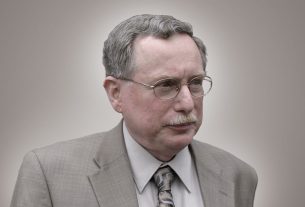Kenya will inaugurate its first “Zion Forest” in Machakos County in June to celebrate Israel’s 75th anniversary and 60 years of diplomatic relations between Israel and Kenya.
The project, a partnership of the Office of the First Lady of Kenya Mama Rachel Ruto, Keren Kayemeth LeIsrael – Jewish National Fund, Kenya Forest Service and the Machakos County Government, is expected to include a minimum of 5,000 trees, explained Yahel Margovsky, wife of Israel’s ambassador to Kenya Michael Lotem and a diplomat.
“The Kenyans are very religious people, mostly Christians, and for them, Zion has a lot of meaning,” Margovsky told The Jerusalem Post.
The idea for the forest came from Margovsky and aligns with the first lady’s vision of planting 15 billion trees in Kenya by 2032 to help combat climate change and revitalize the country’s land.
KKL to send delegation to Kenya in summer
The country is collaborating with KKL, whose director of international relations, Karine Bolton, said the organization would send a team to Kenya in June to work with the local forest service and determine what trees to plant initially.
The prime minister of Kenya and his wife were in Israel earlier this month for official meetings. During that trip, President William Ruto planted a tree in the Grove of Nations. He and his wife also met with KKL staff to discuss their plans.
“They would like us involved, including helping them to come up with what kinds of species they want to plant and to consult on planting and growing techniques,” Bolton said.
Right now, the plan is to plant indigenous species and some “biblical trees,” Margovsky added, noting that the plot of land the group has been given in Machakos County is 15 acres, and she expects even more than 5,000 trees to be planted eventually.
“I offered the idea of the Zion Forest to the first lady because she is very active in the climate change space” through her nonprofit organization Mama Doing Good, Margovsky explained.
Even before First Lady Ruto took office, she had established the organization focused on three pillars: climate change, women and youth empowerment and diplomacy.
Kenya, like Israel, has a semi-arid climate, making it challenging to plant. In 2017, Kenya and KKL signed a memorandum of understanding to work on growth initiatives, but joint initiatives have yet to progress officially.
“We are both extremely interested in reviving the MOU and seeing if we can come together,” Bolton said. For example, KKL could provide Kenya with a capacity-building plan, technique transfers and ideas on how to plant trees so they will survive and rehabilitate the landscape as the organization has done in Israel.
“Semi-arid environments are a huge challenge,” Bolton explained. “Many countries have gone on massive planting initiatives, but a lot of time, the trees do not survive… So to rehabilitate the landscape, you have to look at biodiversity, soil health, species, how you are engineering the land to capture as much water as possible and more.”
Bolton has been to Kenya and said it looks like the Negev.
Israel has collaborated privately with Kenyans on environmental initiatives, such as a desert agriculture initiative between the Arava Institute and a Kenyan church that taught local communities how to manage watersheds, collect seeds and grow trees.
The success of the Zion Forest project will be measured not only by planting trees, however. How well it integrates the local community and youth into the project and builds climate resilience will also be important, Margovsky said.
“The local communities are seen as influential agents of change. The final target is to make the forest serve as a basis for educational and training programs for increased environmental awareness,” she concluded. “In our vision, Zion Forest shall become a regional hub of environmental excellence.”


